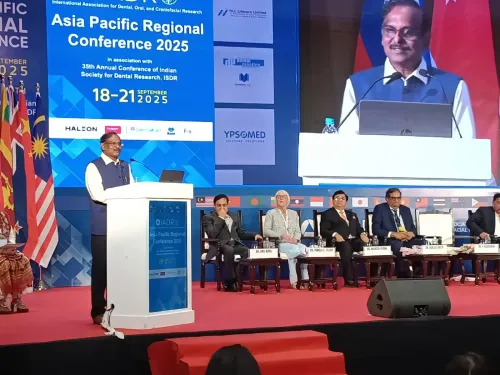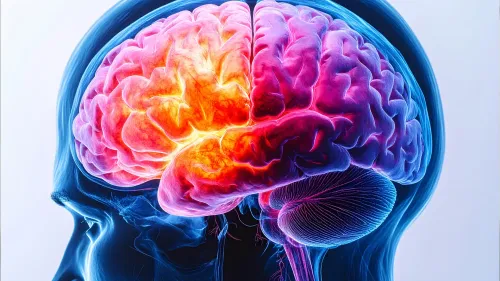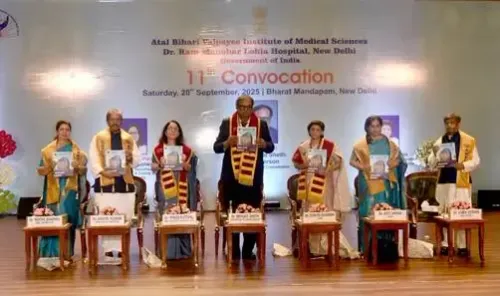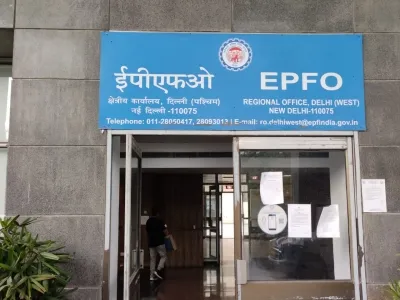Nadda Emphasizes the Need for Increased Awareness and Early Diagnosis of Haemophilia and Other Bleeding Disorders
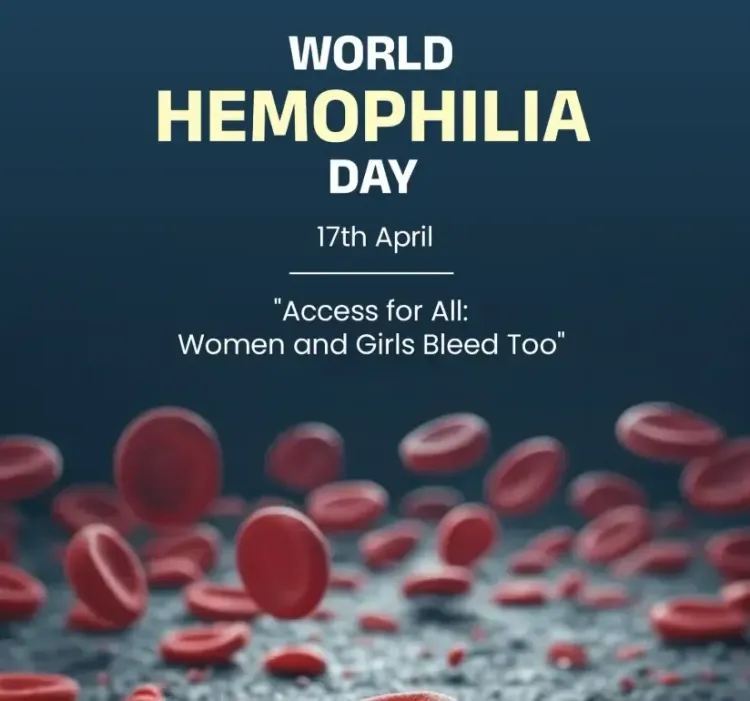
Synopsis
Key Takeaways
- Importance of awareness and early diagnosis in haemophilia.
- Only 18% of Indian patients are diagnosed.
- New treatments are transforming patient care.
- Women and girls face unique challenges in healthcare.
- Medical advancements are improving lives of haemophilia patients.
New Delhi, April 17 (NationPress) Enhancing awareness, early diagnosis, and access to healthcare are essential in the battle against haemophilia and other bleeding disorders in India, stated Union Minister JP Nadda on World Haemophilia Day this Thursday.
World Haemophilia Day, celebrated annually on April 17, aims to raise awareness about bleeding disorders. This year's theme is: "Access for All: Women and Girls Bleed Too".
Haemophilia is a rare bleeding disorder that results in improper blood clotting, even from minor injuries.
“On #WorldHaemophiliaDay, let’s increase awareness about haemophilia and other bleeding disorders, encourage early diagnosis, and enhance access to care,” Nadda expressed in a post on the social media platform X.
He emphasized that this year’s theme -- “Access for All: Women and Girls Bleed Too” -- highlights the unique challenges faced by women and girls, calling for inclusive and equitable healthcare for everyone.
India carries a significant burden of haemophilia, housing the second-largest patient population worldwide, estimated at around 136,000 individuals.
However, “only 18 percent are diagnosed, in contrast to 90 percent in developed countries,” noted Dr. Tulika Seth, Professor of Haematology at AIIMS Delhi, during an interview with IANS.
“Haemophilia transcends being just a bleeding disorder -- it is a lifelong challenge requiring ongoing care, timely diagnosis, and access to treatment,” she added.
Seth pointed out that the primary reason for delayed diagnosis is the lack of awareness, which can lead to preventable joint damage.
Each bleeding episode demands attention, with patients often experiencing prolonged recovery times, and severe complications may arise if any bleeding goes unaddressed.
In approximately 80 percent of cases, haemophilia presents as bleeding, most commonly affecting large joints such as knees, ankles, elbows, hips, and wrists, followed by significant bleeds involving major body muscles.
However, the most critical incidents are those that involve bleeding in the head/brain, neck, chest cavity, and the abdominal and pelvic regions.
The expert highlighted that medical advancements are significantly improving the lives of patients with this condition.
While conventional treatments involved replacing clotting factors during bleeding episodes, which provided prophylaxis or preventive treatment, new non-factor monoclonal replacement antibodies like emicizumab are offering enhanced protection with fewer infusions, particularly for patients with inhibitors, Seth mentioned.
Last year, researchers at the Centre for Stem Cell Research (CSCR) at Christian Medical College (CMC), Vellore, developed the first-in-human gene therapy using lentiviral vectors for severe haemophilia A.
CMC-Vellore scientists also conducted India’s first human clinical trial of gene therapy aimed at haemophilia A (FVIII deficiency).

